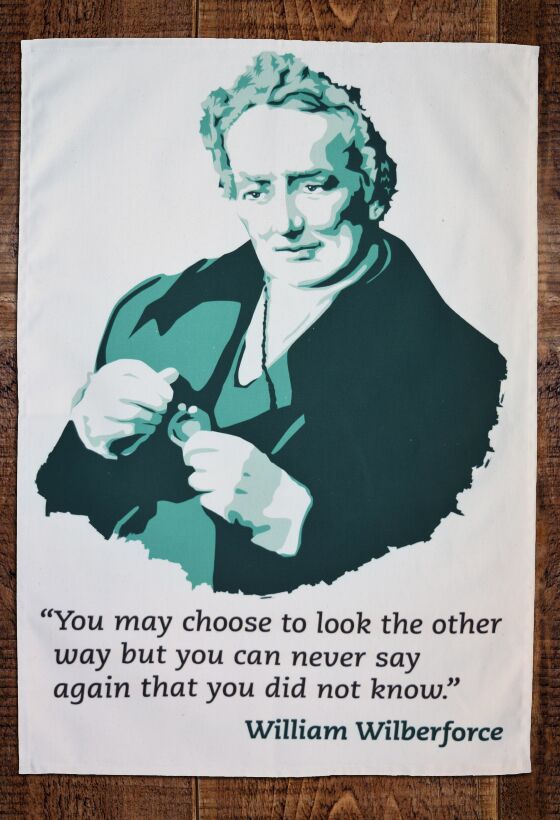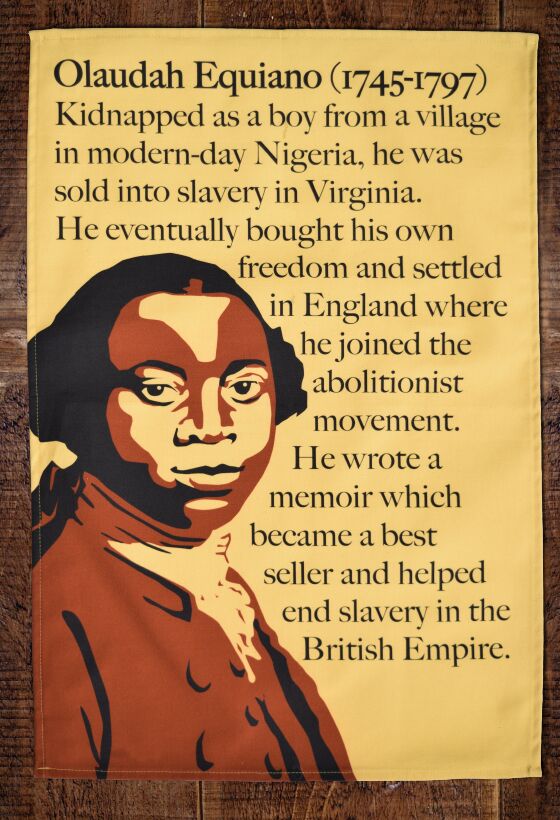(Radical) Black History Month, Part 1: Britain's Black Abolitionists
Posted by Pete on 30th Sep 2019
Black activists in Britain played a massive - and to this day massively overlooked - role in the abolition of slavery. We begin our Black History Month series by remembering just a few of them.
The Radical Reason behind Black History Month
Today marks the beginning of Black History Month in the UK and, with it, our four-part series on Radical Black History in Britain (you'll be able to read parts 2, 3 and 4 on our blog).
Black History Month, in Britain as in America, was created as a solution.
It's there to counterbalance the ways in which conventional historical narratives glorify power and privilege, while minimising black lives or glossing over them altogether.
Sadly, even Radical History has never been safe from this pathology.
The movement to abolish slavery during the 18th and 19th centuries is a case in point.

William Wilberforce and the conventional view of abolition
In conventional histories, the struggle to defeat slavery – in many ways the founding moment of radical modern day politics in Britain – has come to be symbolised by the person of William Wilberforce.
Through the symbol of Wilberforce – a wealthy, white MP from Hull – many tend to imagine British abolitionism as having been led by a group of privileged, conscience-driven parliamentarians, fighting slavery at the dizzying political heights of imperial Westminster.
But this picture of abolition is incorrect – or at least incomplete.

Click to view our William Wilberforce redesign with famous words from the anti-slavery legend.
Spearheading the real movement against slavery were a large number of black men and women, themselves often former slaves stolen away from their homeland.
The most famous of these black activists was no doubt Olaudah Equiano, whose 1789 autobiography helped bring the British anti-slavery movement into the public eye.
But Equiano was far from the only black figure in British abolitionism.
There was also Mary Prince, the first black woman to publish an autobiography in England. Her book,The History of Mary Prince, recorded the horrors she had experienced as a slave in the Caribbean.
Published in 1831, the book energised the anti-slavery movement in the run-up to its great 1833 victory – the abolition of slavery throughout the non-Indian British Empire (the slave trade having been outlawed in 1807).
Then there was the peerless Ottobah Cugoano. A close friend of Equiano, with whom he worked in the ‘Sons of Africa’ black abolitionist group, Cugoano’s Narrative of the Enslavement of a Native of Africa was published in 1787.
Recounting his brutal abduction from his home in modern day Ghana and subsequent experience of slavery in Grenada, the book included the first public demand for the total abolition of slavery by an African in Britain.
These stories – and the countless more I haven’t mentioned – aren’t just extra details in the history of Britain's abolitionist movement.
They are central to understanding the entire campaign.

The importance of Black History Month
The dark forces of slavery in the British Empire could never have been overcome without the literary and organisational work of black men and women like Mary Prince, Ottabah Cugoano, and Olaudah Equiano.
None of this is to criticise white activists like Wilberforce, who would surely have been the first to protest the exclusion of his black comrades from the story of abolition.
But by throwing light on the many black activists from the anti-slavery era who’ve typically been left out of our public memory, we can come to a better understanding of what really makes Radical History.
Instead of the false myth of white saviours freeing black slaves, we see the truth of a multi-racial alliance: black and white comrades, arm-in-arm within a mass movement inspired by the unbreakable values of human freedom, dignity, and equality.
This way of learning from the past – the way celebrated and championed by Black History Month – has a lot more to keep teaching us in the present.
That's why during October, I’ll be following this email up with two more posts on Radical Black History in Britain, beginning with the little-known ties between Welsh trade unionists and the African-American tenor Paul Robeson.
In addition to our usual email schedule, we'll send you the links to those extra stories, which will be posted later in the month on our blog.
Watch this space – and have a happy Black History Month!
